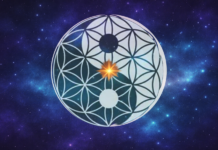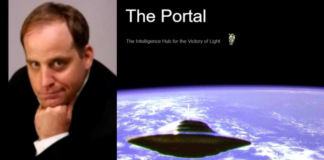From collective-evolution.com:
A psychological exercise called the Ideological Turing test helps individuals explore their ability to critically analyze news, ideas, and beliefs.
The conclusion is, if you cannot explain someone else’s perspective about something, there’s a decent chance you are either wrong or have not taken the time to understand what the topic truly entails.
Many of us exist in this category, which is partly why our society is so divided today. Let’s learn more about the test and how you can take it your self.
Historically a Turing test is used in AI development when developers are testing whether or not their AI model can think like a human. The test is named after Alan Turing, a computer scientist, cryptanalyst, mathematician and theoretical biologist.
“Turing proposed that a human evaluator would judge natural language conversations between a human and a machine designed to generate human-like responses. The evaluator would be aware that one of the two partners in conversation is a machine, and all participants would be separated from one another. The conversation would be limited to a text-only channel such as a computer keyboard and screen so the result would not depend on the machine’s ability to render words as speech. If the evaluator cannot reliably tell the machine from the human, the machine is said to have passed the test.” – Wikipedia
Basically if a human can’t tell the difference between responses from a computer or a human, the computer has passed.
Now, the Ideological Turing Test is similar but slightly different. This time, instead of a computer passing off as a human, you have to be able to explain an opposing position of an argument as well as your opponents would. I.e. as if you believe it yourself. If you can convincingly do so, you have passed the test.
This would essentially mean you know how to listen to others and truly understand other people’s perspective around an argument.
Let’s take COVID vaccination, a hot topic that has people arguing constantly. Do you understand the reaons why some people believe vaccines are essential to stopping COVID? Do you understand the reasons why some are hesitant to be vaccinated?
Right now, many people, including journalists and politicians, cannot explore this topic without applying scorn and ridicule to those they disagree with. In fact, pop culture has come up with a blanket pejorative it applies to all people who are cautionary about the vaccine: “anti-vaxx.” This statement is often used to ridicule, call question to intelligence, and is used instead of exploring the legitimate concerns those who simply question vaccination have. The prominent use of this term is a perfect example of why this test is so important to take: a humble, professional, and honest journalist truly seeking truth would not lean heavily, or at all, on the term “anti-vaxxer.”
Do you identify lightly enough with your position to be able to truly listen to others, and understand them even if you disagree with them? Do you find you are able to change your ideas and understandings in the face of new and clear evidence? If not, you might be in a position where you are ideologically stuck on your ideas, but not necessarily in search for truth.
For many of us, we talk about and hsare information because we want to see something in our world get better. We want to see us, as a collective, arrive at truth. People able to shift people’s point of view and perspective on something comes down to understanding what they are saying, not just thrusting your ideas on them. If you have a strong and immovable identity with an idea, if likely you won’t be able to convince others of your ideas.
Can you pass the test?
Just attempting this test is a good sign you are willing to explore your own bias. Many won’t even do this exercise which can indicate they are too stuck in their identity.
This exercise is one of the most fun parts of a course I built with my friend and colleague Dr. Madhava Setty called Overcoming Bias & Improving Critical Thinking. Seeing what people get out of this exercise is always enlightening.
To take the test, consider any topic you feel you know a lot about, take vaccine mandates for example. Now consider an opposing viewpoint to what your view is about the topic you choose. Now test yourself: can you present that viewpoint in a way that another person would accept as representative of them?
In doing this, you might find that you can’t explain their position very well, meaning you might have become ideological in your view or simply never considered their position. You might find that as you consider explaining their viewpoint, you start wondering what the other person might be thinking or feeling, effectively helping you empathize with another person’s perspective.
In the end, you may still disagree with them, but at least gaining empathy you can understand them and be respectful in future discussion. In fact, you can now go deeper in future discussions, while maintaining a sense of calm and respect.
Why is that important? First off, this becomes helpful in all areas of your life. Personal relationships, in work settings, online, and about societal issues. We connect as communities with authentic conversation. We make important decisions in our lives via authentic conversations. And part of what’s happening in our world right now that is causing division and breakdowns in relationships is that we are not being able to truly listen, understand and hear each other. Conversations remain shallow and avoided, not because they aren’t important, but because we feel we don’t know how to deal with them.
What we get out of deep conversation is meaning and authenticity. It can be tough at first, but it’s incredibly rewarding. You become closer to people and close to yourself. Instead of always burying our repressed ideas as a society, which is never a healthy thing to do long term, we face our mild disagreements in a healthy way through conversation.
More often than not, you’ll notice people actually agree with one another significantly more than disagree, yet culturally we assume we are always at odds with one another. We can end this illusion with improved communication.
It’s also possible this exercise pointed out some areas where your own argument might have been a bit weak, causing you to look more closely at it and perhaps gain greater clarity on it if possible.
But note, we’re not strengthening our argument to defeat other people. Our goal is to arrive at truth and understanding – not go to war. We can call it ‘strengthening’ if we like, but truly, we are attempting to get clear and converge on ideas where possible.
Now, some ideas are more philosophical in nature, and there may not be enough facts to ‘strengthen’ our argument. Nonetheless, it’s important we know how our philosophy came to be, how we can test it, and how we can listen to others. This involves building self awareness, a sense of presence, and skills of inquiry – tools that help us in all areas of life.
When exercises like this cause us to feel offensive or uncomfortable, this may be a sign that you are connecting your identity to what you believe. Our ideas are not who we are, it is not us who is under attack when someone disagrees. If we see it that way, we might want to again take a step back and assess where we have become too close to things.
The implications of becoming stuck in identifying with our beliefs is that we begin to feed into divides, create rifts in relationships, and seed issues within communities. All of this will have us fail to arrive at a place where we can truly thrive. Sure, we can ‘get by,’ but is that all we want? If we had the power within us to thrive, would you want to create that world?
Are you looking for the truth? Or are you seeking to simply adhere to your own ideology?
We don’t want to be wrong or to be stuck in faith based beliefs that we think are factual. But when is the last time we truly tested our beliefs? How do we know what a fact is vs what someone is simply claiming?
I want to make a small note about the importance of seeking truth, through allowing our curiosity and playfulness to take us towards flexible understandings, not about holding hard to our side. Generating different viewpoints as people can be very helpful in collectively evolving our ideas and understandings in order to think of new ways of thriving not just surviving.
As we converse with one another playfully, we can learn whether new understandings have come to light that require us to update our view. We might hear how ideas can affect people with different experiences than us, perhaps inviting us to be more flexible and have a more holistic understanding of a topic and its implications. We might hear from highly trained people who have the capacity to understand things we don’t. Whatever it may be, we all play a role in the information landscape and how it evolves.
Given the information landscape shapes our choices, decisions and actions, it’s important we know how to navigate it and evolve it well. Natural inquiry with one another is an innate sense of play in humans, but one that can get overridden by bias and rigid personality.
Real World Implications
I want to be clear, developing a better sense of questioning ourselves and updating our ideas does not mean we shouldn’t expect challenges and differences of opinion, it means we will be flexible enough to find a solution when it does happen.
Look at how political parties function today. We have picked an ideological side, left to or right for example, and regardless of what the issue is, we seem to think of a solution in terms of what our ideological side is suggesting.
We often have a misinterpretation of the other side, often classifying their belief by some harsh name, and we get together with ‘like minded’ people to re-enforce our beliefs about the issue. We even watch news and media that are slanted towards our ideological position so we can strengthen it even further.
This effectively pulls us away from other people, often dehumanizing them into a name or a phrase to describe them, without ever truly understanding them. This, especially over time, has huge effects on how communities break down, politics runs a muck, and how we end up not knowing how to arrive at truth any more.
Thus, our decisions are hard to make, our direction as a society is unclear, and we can’t have basic conversations with people we disagree with unless it becomes heated.
As a journalist and individual who has been working to help people with personal transformation for over 13 years, I truly believe the skills we spoke about above are some of the most important things we can develop to turn our world around in the long term. Self awareness, presence, a sense of inquiry, critical thinking etc. It’s about developing all aspects of who we are, not just emotional regulation or not just mental processes, but ALL of who we are – things we really should have learned in school.
If you want to dive deeper into this journey, we actually use this test in our course called Overcoming Bias & Improving Critical Thinking. It’s a structured program I built with my friend and colleague Dr. Madhava Setty and it’s a very helpful tool in building self awareness, communication skills, critical thinking skills, and improving your overall sense making.
Disclaimer: We at Prepare for Change (PFC) bring you information that is not offered by the mainstream news, and therefore may seem controversial. The opinions, views, statements, and/or information we present are not necessarily promoted, endorsed, espoused, or agreed to by Prepare for Change, its leadership Council, members, those who work with PFC, or those who read its content. However, they are hopefully provocative. Please use discernment! Use logical thinking, your own intuition and your own connection with Source, Spirit and Natural Laws to help you determine what is true and what is not. By sharing information and seeding dialogue, it is our goal to raise consciousness and awareness of higher truths to free us from enslavement of the matrix in this material realm.
 EN
EN FR
FR


























